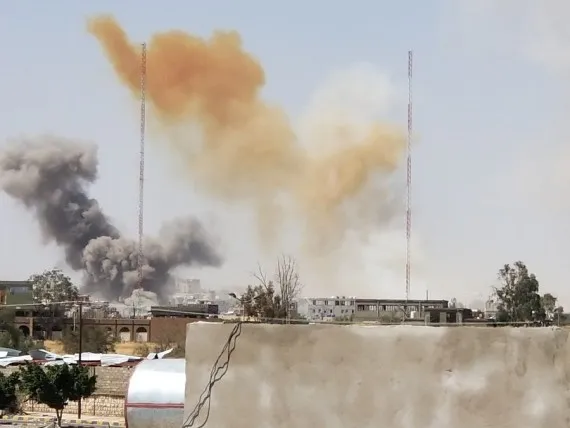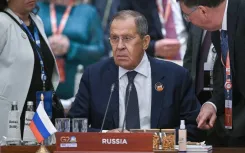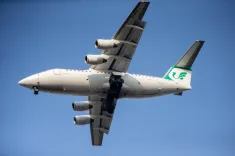Has the Yemeni government dismantled a terrorist cell linked to the assassination of a UN official?

Synopsis
Key Takeaways
- Yemen's government dismantled a major terrorist cell.
- Key suspects in the assassination of a WFP official have been arrested.
- The cell was linked to previous attacks, including a deadly bombing.
- Authorities discovered bomb-making operations during raids.
- Yemen continues to face severe humanitarian challenges amid ongoing conflict.
Aden, Yemen, June 29 (NationPress) Yemen's internationally recognized government has announced the successful dismantling of a significant terrorist cell, apprehending the key suspects responsible for the 2023 assassination of a World Food Programme (WFP) official.
The government has implicated the cell in operations within the Ash Shamayatayn district of the southwestern Taiz province and for orchestrating attacks across the provinces of Aden, Lahj, Taiz, and Al Bayda, as reported by Xinhua via the state-run Saba news agency.
This cell is characterized as one of the most perilous in the area, with links to a bombing in October 2021 that targeted the convoy of Aden's governor, Ahmed Hamed Lamlas, resulting in the deaths of several aides.
Security forces also apprehended the primary suspects in the murder of UN World Food Program director Moayad Hameidi in At Turbah in 2023, according to reports.
During operations at residential hideouts, authorities discovered bomb-making facilities and confiscated explosive devices and mines.
The announcement regarding the dismantling of the terrorist cell was made at a meeting of the Supreme Security Committee in the southern port city of Aden, led by Rashad al-Alimi, the head of the Presidential Leadership Council.
Yemeni government officials, military leaders, and political figures have frequently been targets of bombings and shootings, particularly in southern regions.
Since late 2014, Yemen has been engulfed in conflict, following the Iran-aligned Houthi group’s seizure of several northern provinces, which forced the internationally recognized government to flee the capital, Sanaa.
The conflict intensified in 2015 when a Saudi-led coalition intervened to reinstate the government. Now entering its second decade, the war has led to what the United Nations describes as the world's worst humanitarian crisis. Despite numerous mediation attempts, a lasting peace agreement remains elusive.









